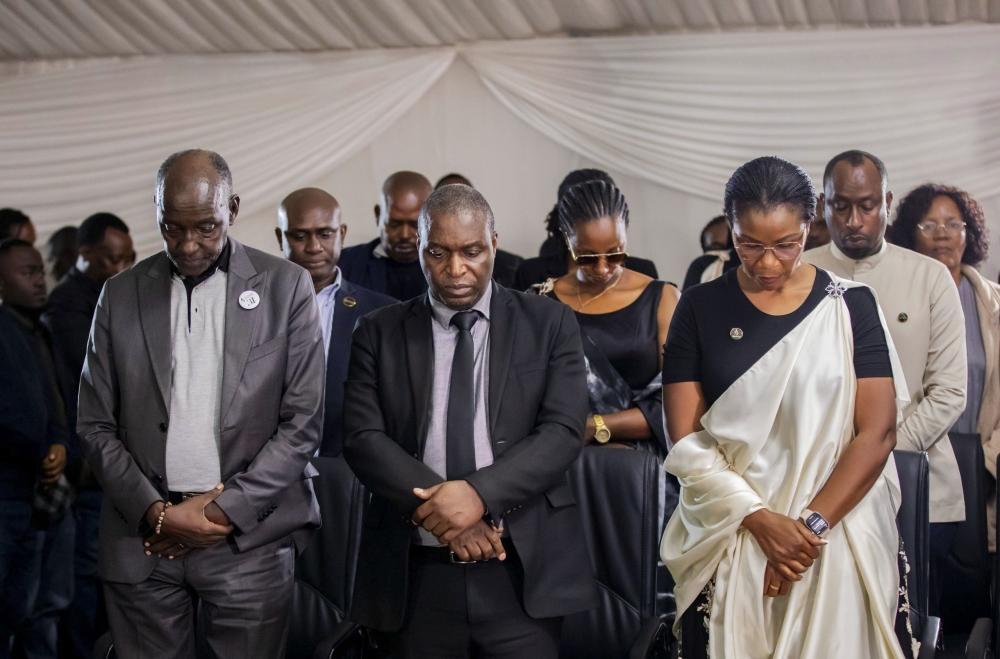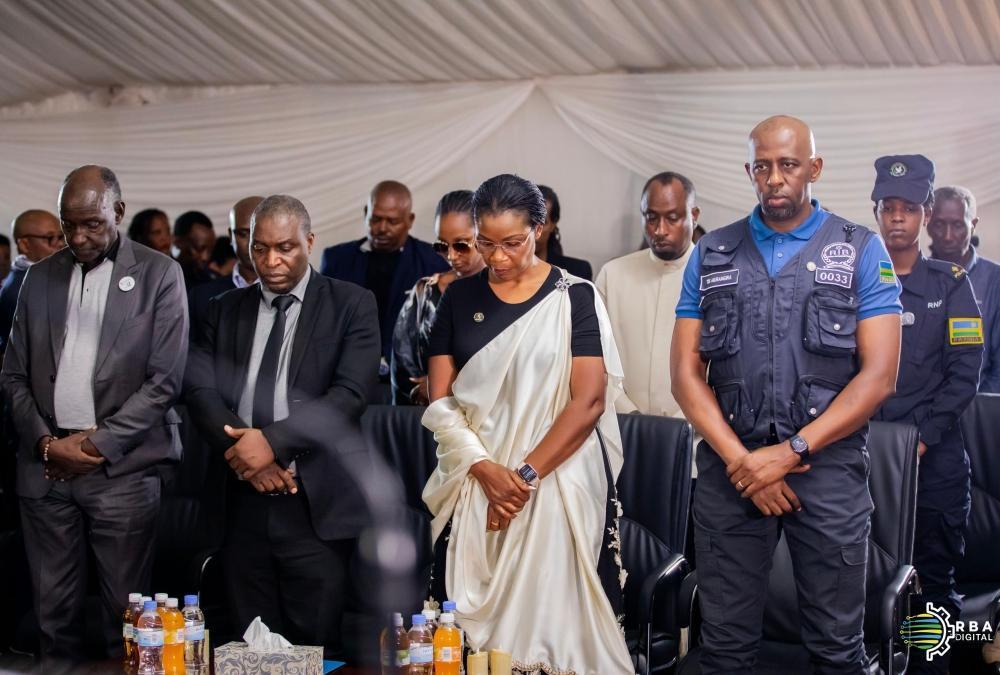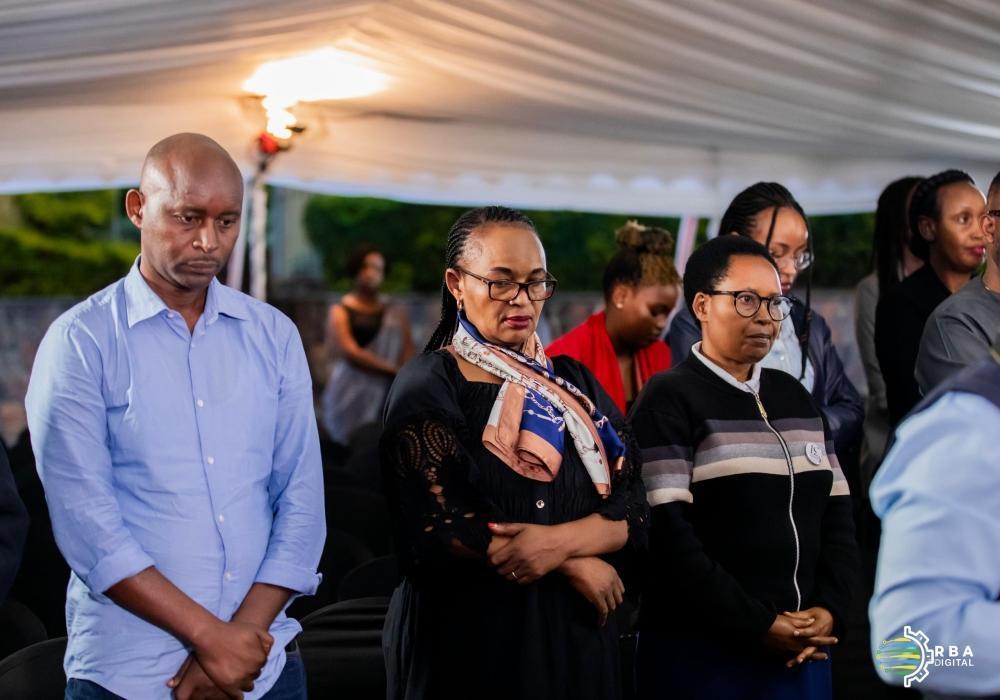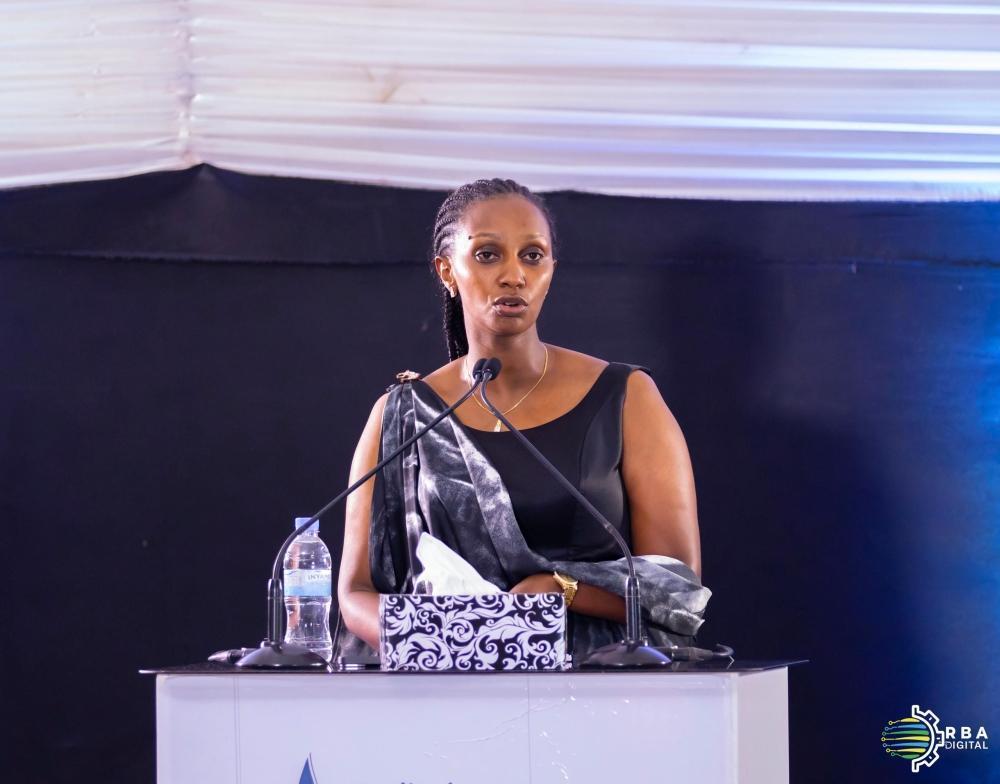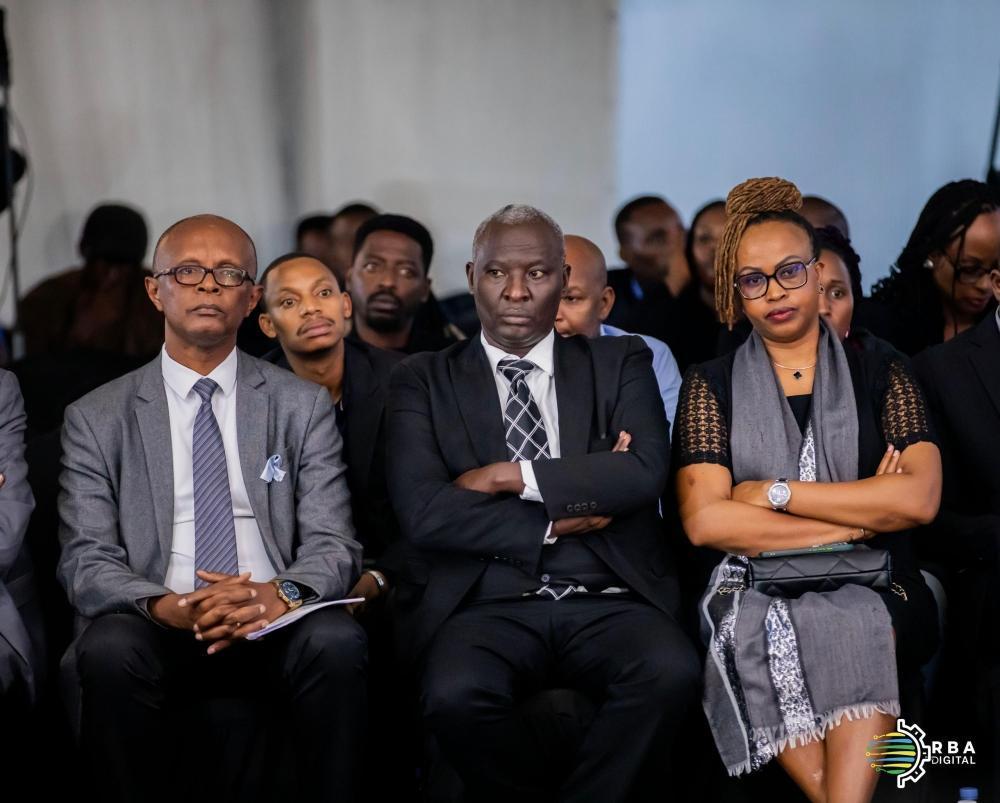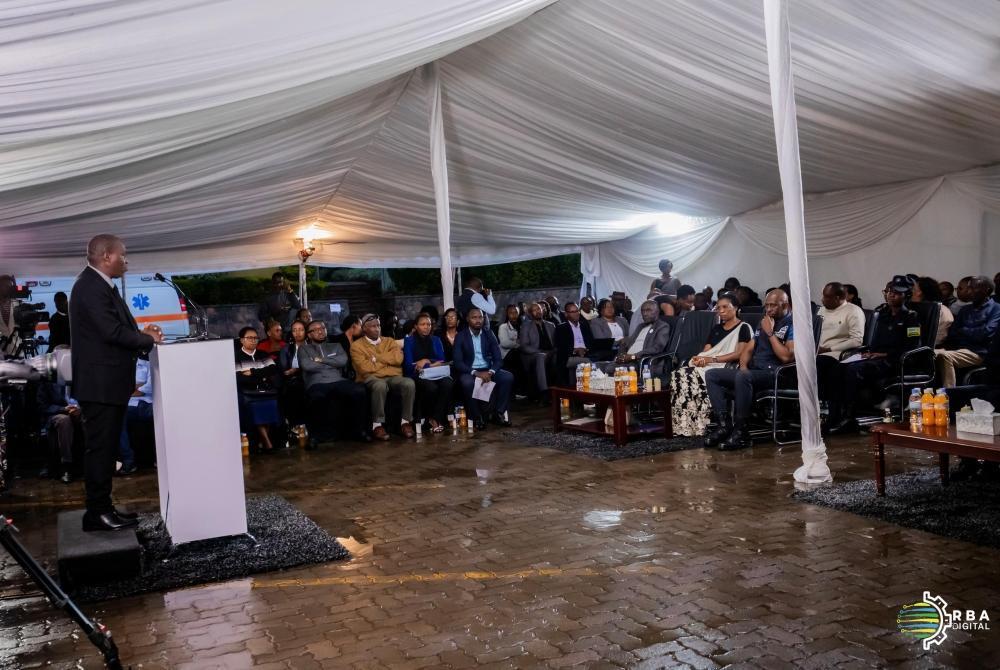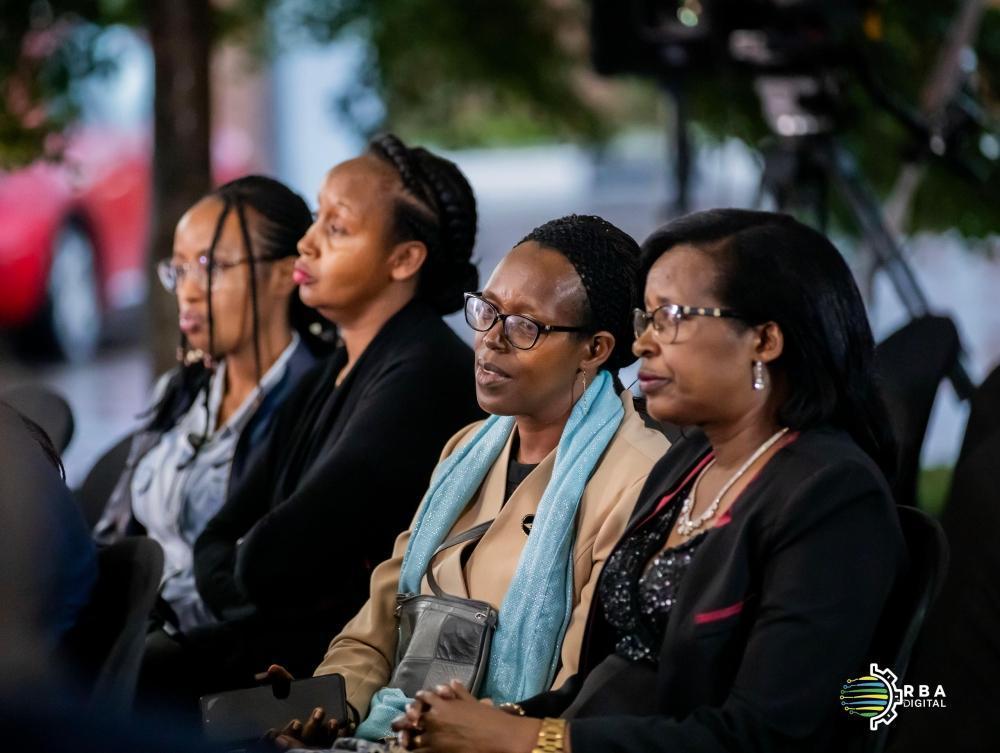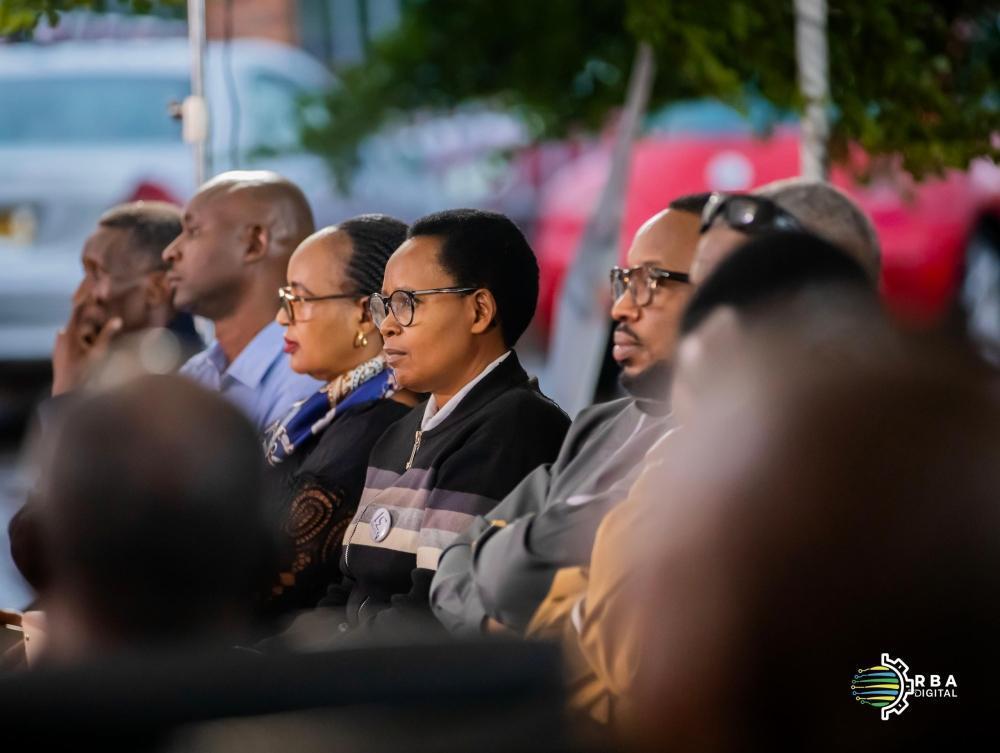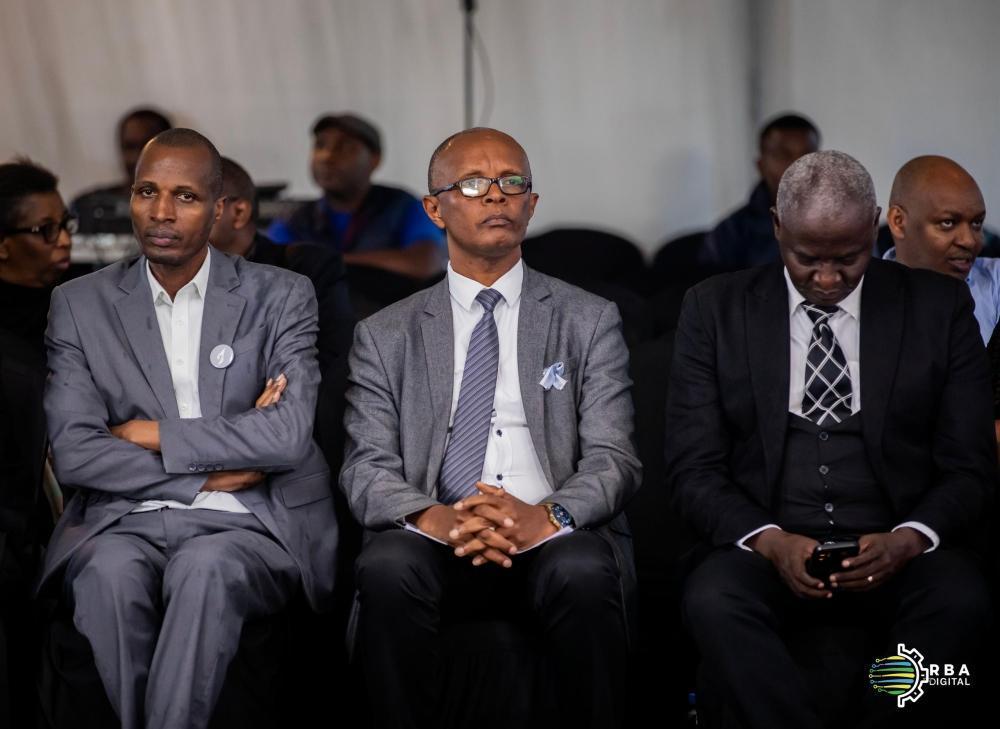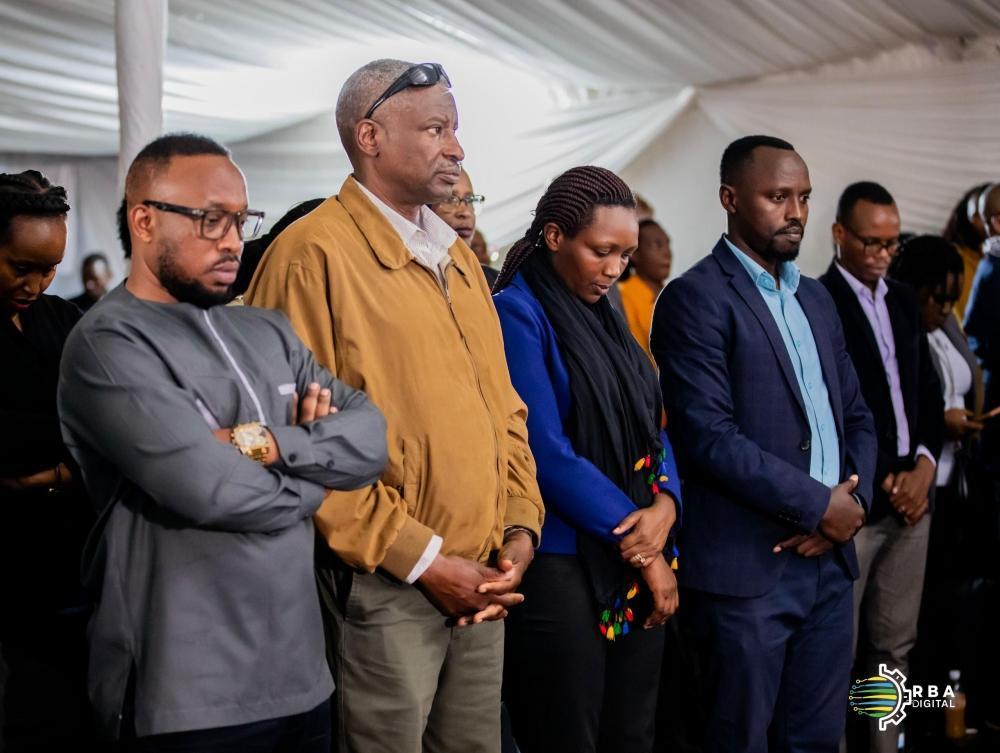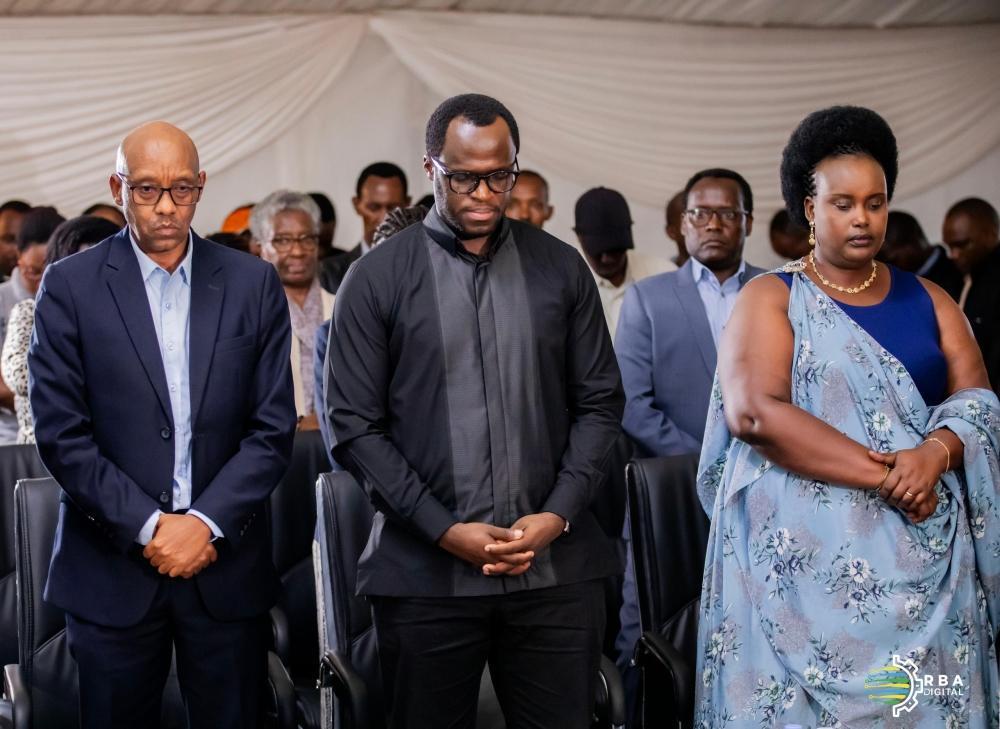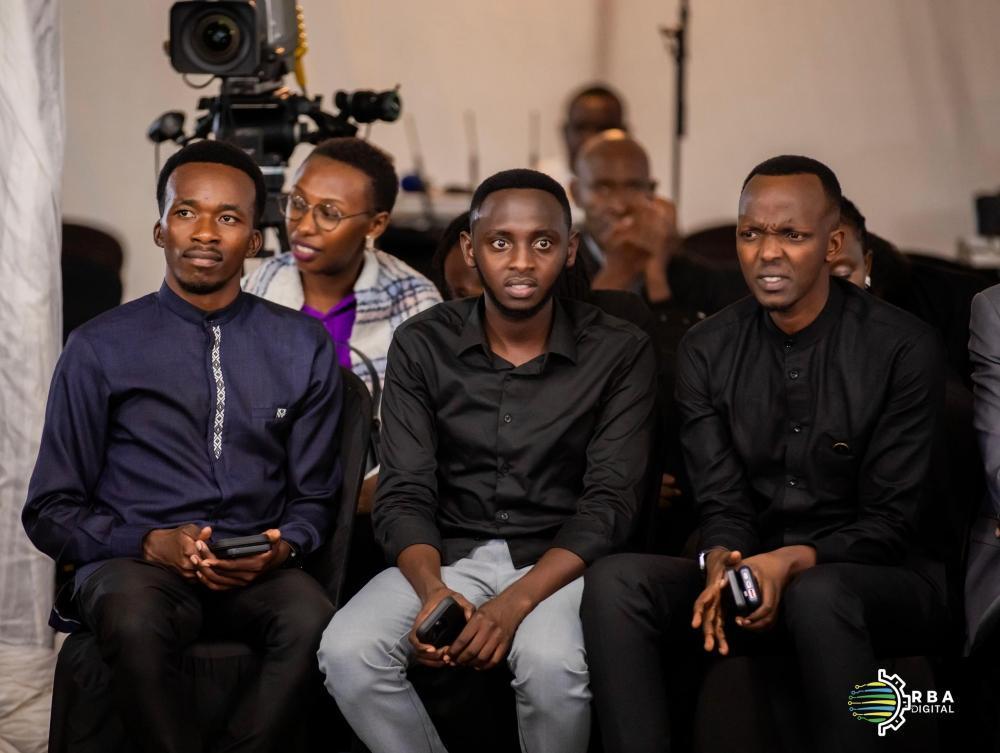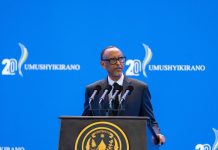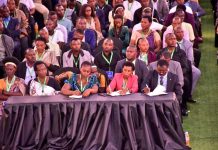Africa-Press – Rwanda. Rwandan journalists and media professionals have been urged to prioritize their conscience when they are dealing with Rwanda’s history, especially the 1994 Genocide against the Tutsi.
This was said on Saturday, April 12, as the media fraternity commemorated journalists who were killed during the Genocide and reflected on the role of the media in the tragic history.
In the event, held at Rwanda Broadcasting Agency (RBA) headquarters to remember 60 journalists killed during the Genocide, the Chairperson the Rwanda Media Council (RMC), Scovia Mutesi, called on media practitioners to exercise caution when giving a platform to various sources, who might include deniers of the Genocide that claimed more than one million lives.
“Conscience should be more important than your diplomas, more important than the school you went to, and even more important than what your parents may have taught you. Let conscience guide you in rejecting those who deny or minimize the Genocide using the media to spread falsehoods,” Mutesi said in the commemorative event that was by families of the slain journalists, government officials, and members of Rwandan media.
The RMC boss condemned the shameful role certain journalists played in inciting violence during the Genocide and warned of a dangerous trend where some members of the media, especially international outlets, continue to downplay or deny the atrocities, sometimes for personal gain.
“Media principles demand that we exhibit impartiality. But today international media outlets are not just biased; they have clearly taken sides. They’re using language that minimises the Genocide, giving platforms to Genocide perpetrators to publish and spread their denialist narrative,” she noted.
Even worse, she said, international media blames Rwanda for actions committed by the FDLR, a DR Congo-based militia linked to the Genocide against the Tutsi.
“And yet, we still deceive ourselves in admiring these so-called senior journalists. Let’s not accept that someone from an international media would be the one to tell the truth about our country,” she said.
“I believe a professional journalist should never lie or be influenced by bribes. Unfortunately, we now see journalists who have been corrupted by personal benefits and have ignored their responsibility to honor our country’s history. We must use our voices to combat the evil and genocide ideology and similar vices,” Umutesi said.
HAPPENING: Media practitioners, families of victims, and government officials gather at RBA Headquarters to commemorate over 60 journalists killed during the 1994 Genocide against the Tutsi, which claimed more than one million lives in 100 days. pic.twitter.com/HkaY1rFRhk
— The New Times (Rwanda) (@NewTimesRwanda) April 12, 2025
Emmanuel Havugimana, a senator and author of the book “Tubibuke,” echoed these concerns, drawing from his own experience of witnessing the destructive role media played in fueling the Genocide and massacres that preceded it.
He specifically pointed out Kinyamateka, a church-owned publication that prominent figures like President Grégoire Kayibanda, using a pseudonym, would publish his political party PARMEHUTU’s views.
This media role in inciting violence was further worsened by Kangura and Radio Télévision Libre des Mille Collines (RTLM), which called on Hutu to kill Tutsi, framing it as an “act of heroism and a patriotic duty to be celebrated when the time came.”
“In May 1992, Radio Rwanda broadcast fake news claiming that RPF Inkotanyi soldiers planned to kill four million Hutu to reach an equal number of Tutsi in the country. That false information sparked mass killings in Bugesera. This shows that media can be a weapon. Please use it responsibly,” Havugimana said.
Judith Uwizeye, the Minister in the Office of the President, warned that the genocide ideology is not confined to Rwanda but continues to spread in the region, especially in neighboring DR Congo, where Rwanda is often blame for the insecurity that has lasted 30 years.
“Given the trust the public places in the media, journalists must take responsibility for delivering accurate information and uncovering the real causes of insecurity in the DR Congo,” Uwizeye said about the conflict pitting the AFC/M23 rebels and a government coalition in eastern DR Congo.
“While the Congolese people are fighting for their basic rights, including the right to life, they are wrongly labeled as Rwandans. This false narrative, fueled by hate speech from top political leaders, has led to brutal killings, the destruction of their property, and many other serious abuses.”
Uwizeye urged Rwandan journalists to take responsibility and fight misinformation and become truth-tellers.
The minister reaffirmed the government commitment to supporting media development, while calling on journalists to play a central role in fostering national unity, truth and integrity.
Christine Muhongayire, the Vice-President of IBUKA, urged journalists to play a role in fighting genocide ideology by learning from the mistakes made by some of their predecessors.
Notable meida figures who stoked Tutsi killings include Valérie Bemeriki, Kantano Habimana, Hassan Ngeze. These ones were involved in spreading harmful ideologies.
The Chairperson the Rwanda Media Council (RMC), Scovia Mutesi, called on media practitioners to exercise caution when giving a platform to various sources, who might include deniers of the Genocide.

For More News And Analysis About Rwanda Follow Africa-Press

